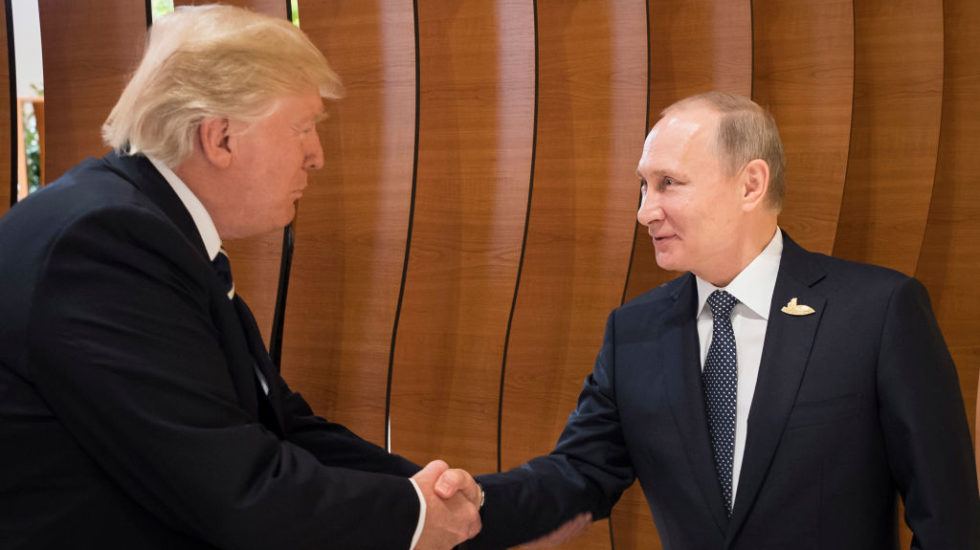It wasn’t exactly a jaw-dropping surprise when the Department of Justice announced indictments against a bunch of Russians. Anyone who knows anything, save one White House holdout, believes the Kremlin was behind a sophisticated and well-orchestrated campaign to disrupt the 2016 presidential election. Robert Mueller’s amazingly detailed indictments were just a nice exclamation point on the whole Russia mess. So now the question is, what are we going to do about it,?
In any other administration, this would be an act of war or at least a crime worthy of sanctions. But, per usual, Donald Trump made it all about him. “No collusion!” he tweeted. Geez.
Russia started their anti-US campaign in 2014, long before I announced that I would run for President. The results of the election were not impacted. The Trump campaign did nothing wrong – no collusion!
— Donald J. Trump (@realDonaldTrump) February 16, 2018
Our question isn’t about the past, but what do we do to make sure it doesn’t happen again? Senior intelligence officials have been given zero guidance for 2018. The Director of National Intelligence, Dan Coats, told Congress this week the United States is under attack. He didn’t say was. “We expect Russia to continue using propaganda, social media, false flag personas, sympathetic spokesmen, and other means to influence and try to build on its wide range of operations and exacerbate social and political fissures in the United States,” Coats added.
Here’s Mike Pompeo, the Director of the CIA: “We have seen Russian activity and intentions to impact the 2018 election cycle.”
But if the President continues to insist there was no Russian meddling, how can he with a straight face order it not to happen again? Nothing less than the integrity of our electoral process is at stake.
Max Bergman, the head the Moscow Project for the Center for American Progress told The Washington Post, “There have been no Cabinet meetings on Russian interference, no agency has been charged with leading a response, and no election security legislation. Worse, the administration amazingly turned lemonade into lemons with the new Russia sanctions legislation by not sanctioning anyone.”
Senator Mark Warner (D-Va.) expressed his frustrations at the inattentiveness of Trump to this issue: “Despite all of this, the president inconceivably continues to deny the threat posed by Russia. He didn’t increase sanctions on Russia when he had a chance to do so. He hasn’t even tweeted a single concern. This threat demands a whole-of-government response, and that needs to start with leadership at the top.”
It will also take a concerted effort by big tech. Facebook, which also owns Instagram, is at least talking the talk. Facebook Vice president Joel Kaplan: “We know we have more to do to prevent against future attacks … We’re making significant investments, including increasing the number of people working on security from 10,000 to 20,000 this year.”



